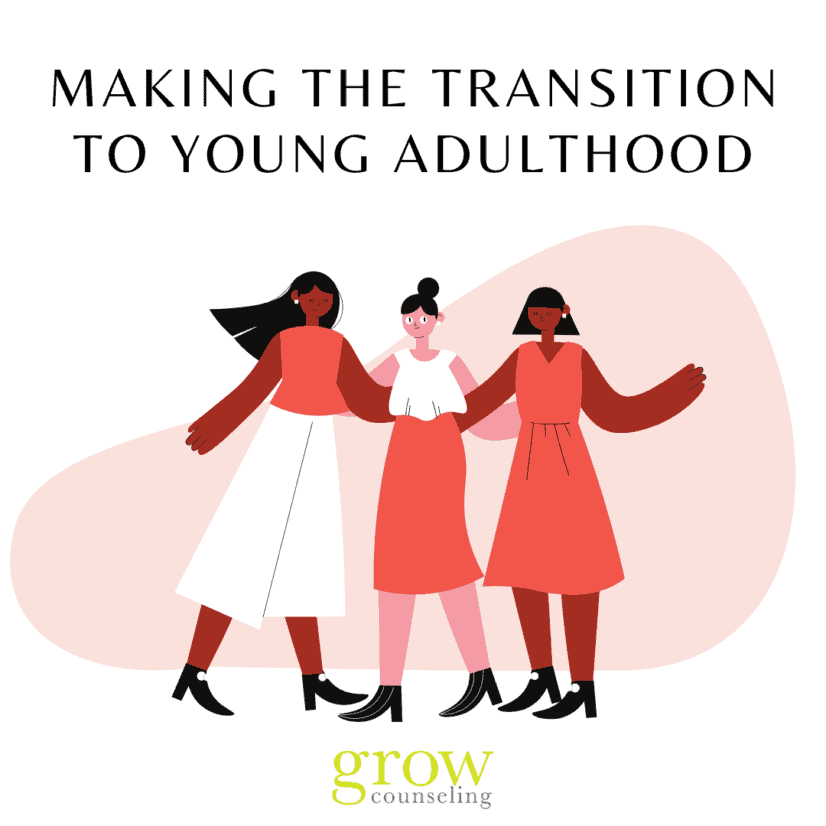Transitions are hard. They are hard because they involve change and all change (even good change) involves loss. When we think about the transition from adolescence (12-18 years old) to young adulthood (19-40 years old) there are a TON of transitions.
Transitioning from living with your parents to roommates or on your own. Transitioning from being under your parents rules to more freedom. Transitioning with family, friendships, moving to different cities/states, finding a career path, etc.
Erik Erickson’s theory of psychosocial development states that in order for one to successfully transition to Young Adulthood they have to have first moved through the previous stages including the adolescent stage of “Identity versus Role Confusion.”
During the years of 12 to 18, social relationships and identity are most important for teenagers to develop a sense of self and personal identity. Success in this stage looks like being able to answer the question, “Who am I and where am I going?” Success in this stage also involves an ability to stay true to oneself.
If this does not occur it can lead to role confusion and a weak sense of self.
The next stage is young adulthood from 19-40 years old which is the stage of “Intimacy versus Isolation.” During this stage intimate relationships are an important event to answer the question of, “Am I loved and wanted?” During these years young adults need to form intimate, loving relationships with other people. Success leads to strong relationships.
If this does not occur it often leads to loneliness and isolation.
Part of how we are able to move through these stages successfully is by discovering who we are, what our needs are, and what unhealthy beliefs/fears are holding us back. Once we become aware of these areas, we can then take a baby step towards finding greater fulfillment in our relationships. Therapy is one way that we can take that baby step towards answering these questions and creating openness and awareness in our relationships.
Written by: Betty Gebhardt

